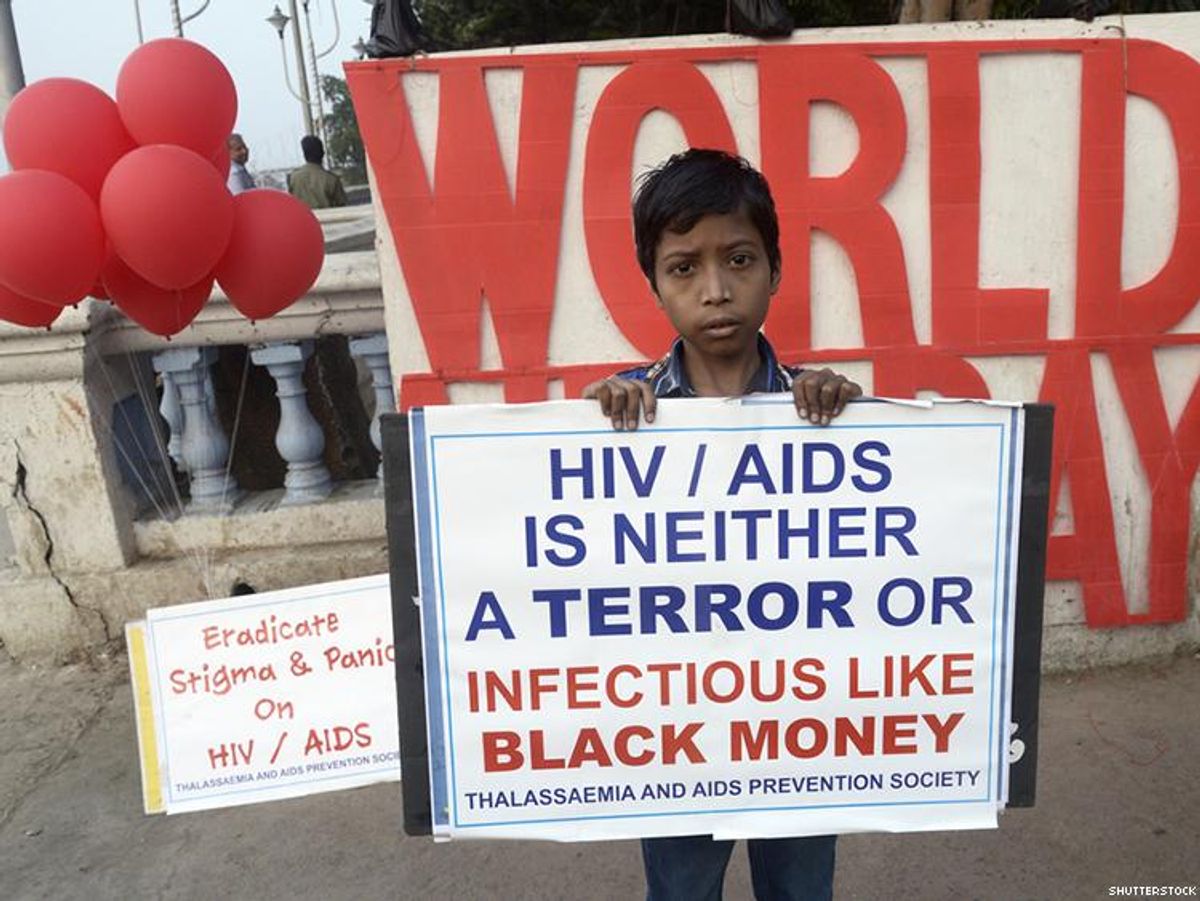India’s parliament made history this week by passing a landmark bill ensuring equal rights for those living with HIV.
The HIV and AIDS (Prevention and Control) Bill was the first of its kind in the eastern world, and it vows to protect HIV-positive people from being denied work, having access to education, housing, health care, even the right to hold public or private office. Additionally, it also prohibits businesses from refusing entry to anyone who is HIV-positive.
For HIV activists in India, the bill couldn’t have come at a better time. Earlier this year, Manvendra Singh Gohil, India’s first openly gay Prince of Rajpipla, said volunteers at his HIV foundation experienced constant harassment by authorities while trying to educate men who have sex with men about safer sex practices — some were even taken to precincts and raped by policemen.
India decriminalized gay sex in 2009 after a Delhi high court said the law was a violation of a person’s fundamental rights. But everything changed in 2013 when the Indian Supreme Court chose to overturn the lower court and uphold the ban on gay sex, saying that only India’s Parliament has the right to overturn the anti-gay statue S.377, not the lower court judges.
Now that parliament has set a ban on HIV discrimination, which is often associated with male-on-male sex in that part of the world, some say it’s only a matter of time before the country’s lawmakers overturn S.377 as well.
According to UNAIDS, nearly 2.1 million people were living with HIV in India in 2015, and nearly all of them experienced discrimination of some degree. Three years ago, HIV stigma drove one couple (a husband and wife) to drink poison after getting kicked out of his parent’s home because they were HIV-positive. They died a few days later.
The bill itself took 15 years to make it all the way to parliament, but activists warn that despite the country’s historic move to end discrimination, HIV stigma is rampant in the public’s mindset.
“[Incidents of discrimination] have decreased compared to decades ago but they still occur," Huidrom Rosenara, associate director with the Delhi-based India HIV//AIDS Alliance, said to CNN. “(The legislation) is a long awaited and positive move. We are very optimistic about it as it speaks volumes about the political commitment. It will protect the rights of people with HIV and let them lead their lives with dignity and respect.”
However, not all HIV and human rights activists in India are happy with the bill because, although it helps to extinguish blatant discrimination, it doesn’t guarantee treatment to those in need of medicine, even though India is the biggest supplier of generic medicines to the developing world.
“This new Bill fails to enshrine the rights of its own people,” ITPC-Global’s executive director Solange Baptiste, said in a statement. “I fear it’s an omen of things to come. We, HIV treatment activists, will be watching and monitoring to make sure the Indian government upholds its responsibility to all its citizens living with HIV.”


































































